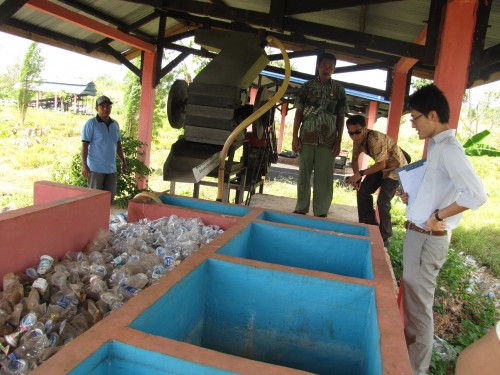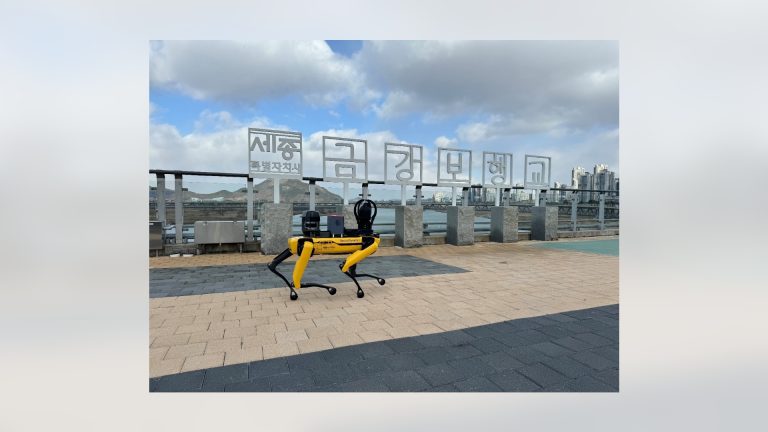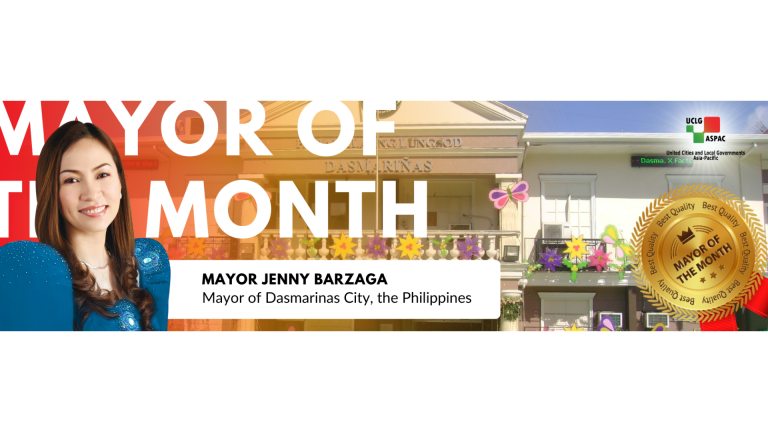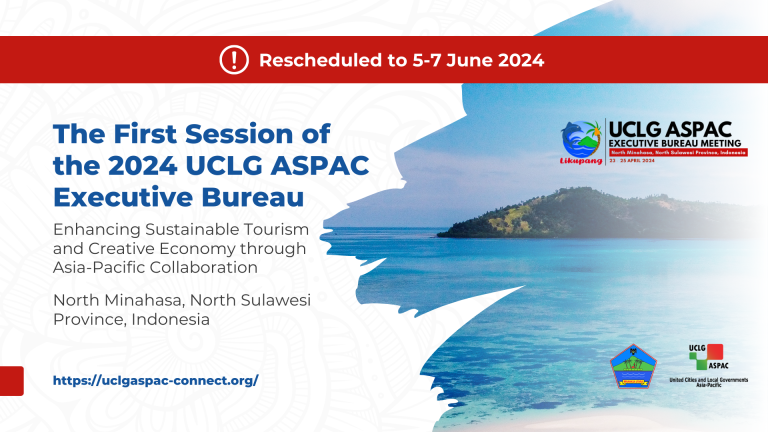A team of UCLG ASPAC and Global Cooperation Institute for Sustainable Cities (GCI) of Yokohama City University (Japan) made a 4-day visit (21–24, August 2014) to Wakatobi Regency, Sulawesi Tenggara Province (Southeast Sulawesi), Indonesia to conduct a first inspection of their joint project.
The project attempts to develop a model of low-carbon society for island communities. The team also attended a dinner meeting organized by Mr. Hugua, the mayor of Wakatobi Regency, to discuss the future direction of the island city. The event was also attended by many key decision makers both from public and private sectors.
Small population, limited land and resources, dependence on imported goods, fishery and tourism. Wakatobi, which boasts the second largest diving spot in the country, has many of the characters shared by dozens of other island jurisdictions in Indonesia and outside. This is also where the impact of global warming and waste problems are felt most severe. In order to address such unique challenges, the project focuses on policy issues such as municipal solid waste (MSW) management and renewable energy, and look to identify/introduce the appropriate technologies and policy models best suited to the island.
Paths are sought to realize sustainable development while taming the environmental impact, the paths the islands can grow within its capacity and cherish its nature.
From more technical approach, UCLG ASPAC has also proposed introduction of technologies/activities with tangible results at the grassroots: Bio Gas generation from underground digester and soap making from used cooking oil. The pilot project will be joined by female residents
Environmental issues are often managerial as well as technical, even more so in jurisdictions, where legal system and environmental policies are under development. Participation of all the stakeholders within the society is also critical for success. While the project is addressing the former by proposing a series of policy recommendations to the Wakatobi government, the team also aims to induce participation of residents, civil society organizations and local industries through activities such as bio gas and soap-making.
At the Focus Group Meeting organized during the inspection was attended by about 60 local NGOs, residents, local industries and public officials, and importance of acting beyond mere planning was shared. Under the vision “maritime prosperity”, the city also hopes to expand its tourism sector, and the number of tourists is expected to rise in the coming years. Wakatobi is at the crossroad, and the island is ready to be a part of major transformation towards a low-carbon society.











